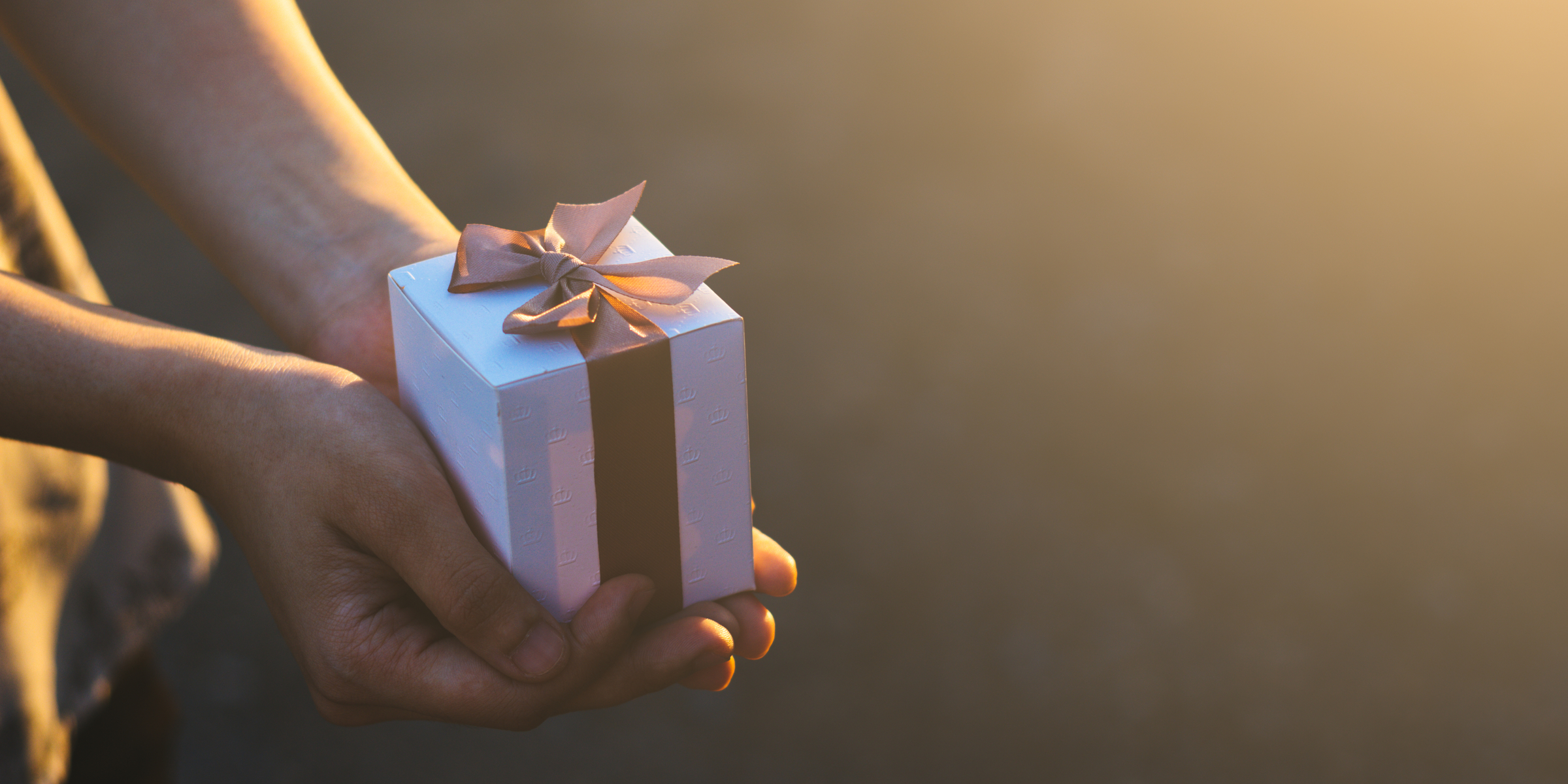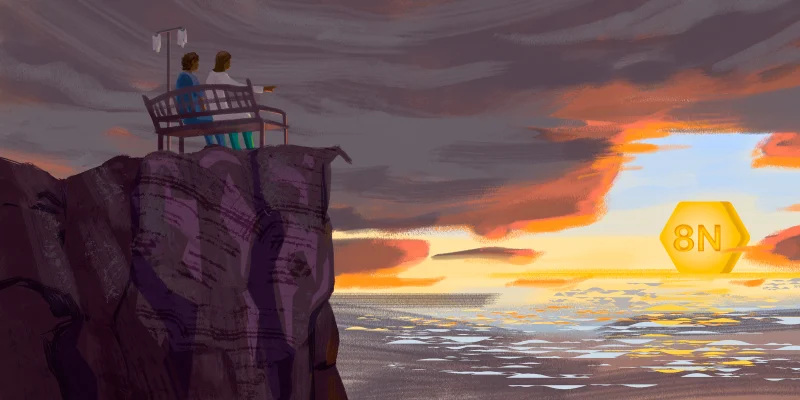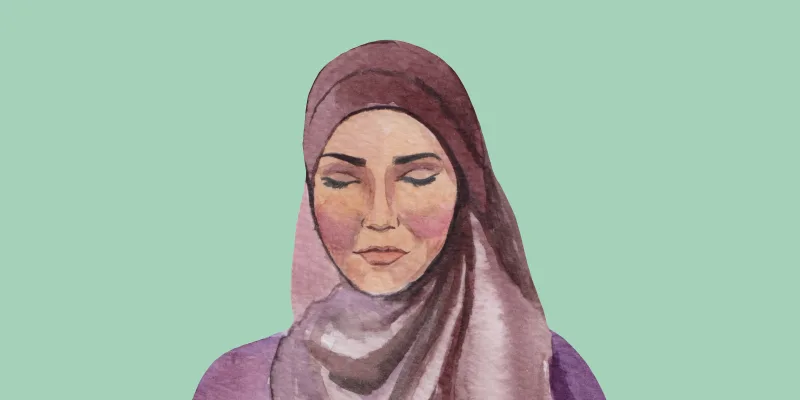 The painted stone is a gift from a patient, now deceased. I keep it on my desk now, where I can see it every day, but I didn’t always.
The painted stone is a gift from a patient, now deceased. I keep it on my desk now, where I can see it every day, but I didn’t always.
During the pandemic, it is a small thing, yet a symbol of how much has changed. I find myself wondering if and when any of us might be graced with a handmade gift again. Something so simple, yet so precious. I didn’t fully appreciate the latter until its possibility was eliminated. I now regret that I did not see this gift’s value — and others like it — from the first moment I held it in my hand.
I travel back in my mind to the day I met her. My patient presents to transfer her care after moving away from a difficult situation. She appears fit and healthy, although she has stage IV breast cancer. She has moved across the country to escape a family member who had harangued and harassed her out of taking traditional treatments, insisting she take only alternative therapies. When that didn’t work, and her disease worsened, the patient wanted to switch to standard-of-care medications, but the only way she could pursue this was to leave.
Because she has received few traditional treatments, I am happy to tell her that I have many to offer her. Many of our visits that first year are not spent having medical discussions. Instead, she seems to want to spend our time together talking about her journey, figuring out her own path. I connect her with our social worker, but I am content to be a listener for her, too.
Time goes on, and unfortunately, her disease course follows right along with the statistical averages. Around the two-year mark, the disease becomes refractory to endocrine therapies. She agrees to try an oral chemotherapy, but after a few months, it is clear the disease is still progressing.
It is also right around this time that she gives me the stone. She tells me she has something for me, and with a shy smile, hands me the small gift. One day she had an urge to start painting these stones, she tells me, even though she’s never been artistic. She describes the gratitude she experiences as she makes each unique painting. She wants me to have one.
I don’t feel deserving of her gratitude after I’ve told her that I have no curative therapy for her. It feels wrong to accept, but I think to refuse would be worse. I receive it with outward enthusiasm, but inside I’m hardening my heart against it.
Selfishly, I don’t want to think about having a reminder of her after she dies. I anticipate it being too painful. Too personal. I want to retreat; to compartmentalize. In fact, to cope with gifts like this, I have a drawer where I keep them out of sight. I don’t want her stone to join them.
As oncologists, we tell our patients that we can never know if their decline will be gradual and steady, or a sudden drop-off, like falling off a cliff. Unfortunately, hers is the latter.
From one visit to the next, only three weeks apart, she has a rapid progression of disease. She listens to the remaining palliative options, and tells me she’ll think about trying more cytotoxic chemotherapy.
One week later, she returns to tell me she’s ready for hospice. From the set of her jaw, I know she has made her final decision. I step out of the exam room to request the assistance of the social worker, and within minutes we have the plan together. My patient will return home with hospice support and pass away a short time later.
Later, I will think that the most valuable lesson she taught me was what it looks like to make peace. To do the hard thing. To listen to the inner voice, even if it tells you to move far away to somewhere you’ve never been before. To paint rocks and transform them into something more than they are. To somehow have the courage and grace to let go.
I think she would want me to remember her not as a woman who died of metastatic breast cancer, but as a woman who found the courage to choose her own path.
A few weeks ago, I thought of her and retrieved the stone from the drawer. When I held it in my hand, I thought about the day she gave it to me.
The oval surface is smooth and polished. It is small and unassuming, the size of the pad of my thumb. When I clutch it in my palm, it is cool to the touch, soothing. On the flat-faced front, small brushstrokes of paint form the image of a flower. The petals are dark blue. There are five of them, surrounding a red center. The bloom is balanced on top of a single brush stroke that denotes a tiny shoot of green with two symmetrical leaves. At the bottom edge, yellow and black swirls of paint manifest the ground, and on top of that, even tinier brushstrokes of green conjure blades of grass.
The scale of the flower is too large for the stem, making it appear to burst out of the stone. Joyful is the only word that comes to mind.
It is a gift that channels strength and frailty, hope and sadness, and makes me want to live up to being the person she wanted to give her gift to.
I think she would forgive me that I took so long to realize this. I am intensely grateful to have this reminder of her.
I do not put the stone away.
Jennifer Lycette, MD, is a medical oncologist in community practice for 14 years. She resides on the North Oregon Coast with her husband and three children. Her blog, The Hopeful Cancer Doc, started in 2017 with writings on practicing oncology, maintaining hope in medicine, work-life balance, and various other musings. Her perspective essays have been published in NEJM, JAMA, and more. She is currently hard at work revising her speculative medical thriller, a Pitch Wars 2019 selection. Dr. Lycette was a 2018-2019 Doximity Author and is a 2019-2020 Doximity Fellow. You can follow her on Twitter @JL_Lycette. Opinions are her own.
Image by 13_Phunkod / Shutterstock







